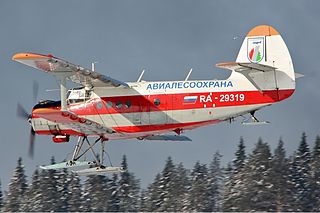This article needs additional citations for verification .(May 2022) |
In shamanism, the term loss of soul refers to the loss of the human part of the life force, the soul. [1]
This article needs additional citations for verification .(May 2022) |
In shamanism, the term loss of soul refers to the loss of the human part of the life force, the soul. [1]
The prevailing concept in traditional shamanism is "any illness is a consequence of a lost or stolen soul. [2] [3] [4] The Khanty and Mansi had the idea that a person had five souls. [5]
The main explanation of the mechanism of soul loss is that in order to preserve oneself in an intolerable situation, part of the soul leaves, as continuing to be in these conditions is so uncomfortable that it can lead to complete disintegration. [6]
In some cultures saying God bless you after sneezing is believed to help prevent soul loss. [7]
In Bali Motorcycle accidents are believed to cause soul loss, resulting in a revival of the belief [8]
Sandra Ingerman, in her book Return of the Soul, identifies the following symptoms of soul loss: [9]
Some people believe that the soul can be returned with the help of shaman, that he goes to his helper spirits [10] or teachers with a request to help in the return of the soul, negotiates with the part of the soul found, asks about the reasons for its departure, finds out the conditions under which the soul will be willing to return, with the claim that the shaman shifts the vast majority of the work of returning the soul to other entities. In preparation for the return of the soul, the shaman may preliminarily produce the return of an animal power. [11]

Shamanism is a religious practice that involves a practitioner (shaman) interacting with the spirit world through altered states of consciousness, such as trance. The goal of this is usually to direct spirits or spiritual energies into the physical world for the purpose of healing, divination, or to aid human beings in some other way.

The Buryats are a Mongolic ethnic group native to southeastern Siberia who speak the Buryat language. They are one of the two largest indigenous groups in Siberia, the other being the Yakuts. The majority of the Buryats today live in their titular homeland, the Republic of Buryatia, a federal subject of Russia which sprawls along the southern coast and partially straddles Lake Baikal. Smaller groups of Buryats also inhabit Ust-Orda Buryat Okrug and the Agin-Buryat Okrug which are to the west and east of Buryatia respectively as well as northeastern Mongolia and Inner Mongolia, China. They traditionally formed the major northern subgroup of the Mongols.

Religious music is a type of music that is performed or composed for religious use or through religious influence. It may overlap with ritual music, which is music, sacred or not, performed or composed for or as ritual. Religious songs have been described as a source of strength, as well as a means of easing pain, improving one's mood, and assisting in the discovery of meaning in one's suffering. While style and genre vary broadly across traditions, religious groups still share a variety of musical practices and techniques.

Filipino shamans, commonly known as babaylan, were shamans of the various ethnic groups of the pre-colonial Philippine islands. These shamans specialized in communicating, appeasing, or harnessing the spirits of the dead and the spirits of nature. They were almost always women or feminized men. They were believed to have spirit guides, by which they could contact and interact with the spirits and deities and the spirit world. Their primary role were as mediums during pag-anito séance rituals. There were also various subtypes of babaylan specializing in the arts of healing and herbalism, divination, and sorcery.

Pavel Semyonovich Lungin is a Russian film director. He is sometimes credited as Pavel Loungine. Lungin was awarded the distinction People's Artist of Russia in 2008.

Yelena Abdulayevna Khanga, also known as Elena Hanga, is an Afro-Russian journalist, television personality, and writer, who is best known for hosting the Russian television programs Pro eto (1997–2000) and Printsip domino (2001–2006) on NTV.
Soul dualism, also called dualistic pluralism or multiple souls, is a range of beliefs that a person has two or more kinds of souls. In many cases, one of the souls is associated with body functions and the other one can leave the body. Sometimes the plethora of soul types can be even more complex. Sometimes, a shaman's "free soul" may be held to be able to undertake a spirit journey.

Traditional Alaskan Native religion involves mediation between people and spirits, souls, and other immortal beings. Such beliefs and practices were once widespread among Inuit, Yupik, Aleut, and Northwest Coastal Indian cultures, but today are less common. They were already in decline among many groups when the first major ethnological research was done. For example, at the end of the 19th century, Sagdloq, the last medicine man among what were then called in English, "Polar Eskimos", died; he was believed to be able to travel to the sky and under the sea, and was also known for using ventriloquism and sleight-of-hand.

A Soulcatcher or soul catcher is an amulet (Aatxasxw) used by the shaman (Halayt) of the Pacific Northwest Coast of British Columbia and Alaska. It is believed by Tsimshian that all soulcatchers were constructed by the Tsimshian tribe, and traded to the other tribes.

Dmitry Lvovich Bykov is a Russian writer, poet, literary critic and journalist. He is also known as biographer of Boris Pasternak, Bulat Okudzhava and Maxim Gorky.

NW Avia was an airline based at Peski (airport) in Petrozavodsk. It was the only air company in the Republic of Karelia. Its main purpose was aerial fire-fighting It was part of Avialesookhrana, although it did perform other typical aerial services (including pipeline and forest patrols, medical flights and search-and-rescue, scheduled and charter passenger flights. and charter cargo services. NW Avia was undergoing reorganization with massive debts and was the largest debtor in the Republic of Karelia. The airlines ceased to exist on July 1, 2014.

My World@Mail.Ru is a social networking service which is a part of Mail.ru portal.

The Kyrgyz Ground Forces, or simply the Kyrgyz Army, is the land force branch of the Armed Forces of the Republic of Kyrgyzstan.

New People is a political party in Russia formed in 2020. New People is considered a liberal party, and observers also often refer to it as centrist or centre-right.
"Where have you been for eight years?", "Where have you been for the last eight years?", or "Why have you been silent during the past eight years?" is a rhetorical question widely used by Russian propaganda in the context of the Russian invasion of Ukraine in support of Russia, mainly pointing out what Ukraine has been doing to the Donbas during the war in Donbas (2014–2022), and that the Russo-Ukrainian War has been ongoing since the 2014 Russian annexation of Crimea. It has been described as Russian pro-war propaganda.

Events in the year 1917 in Finland.

Andrei Borisovich Loshak is a Russian journalist and reporter.